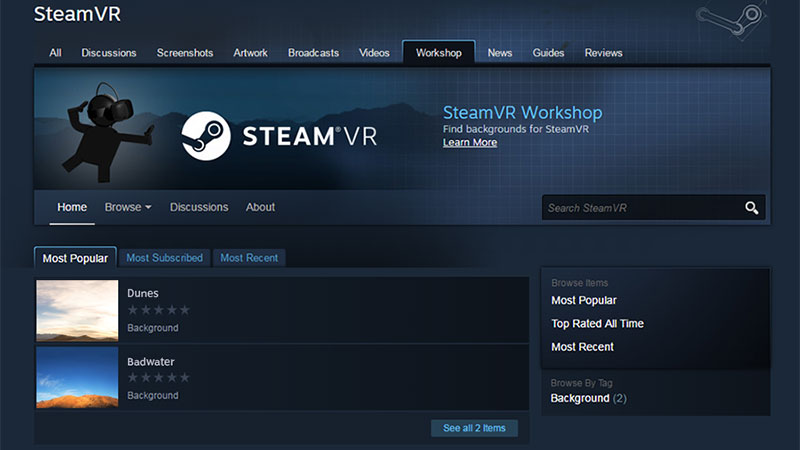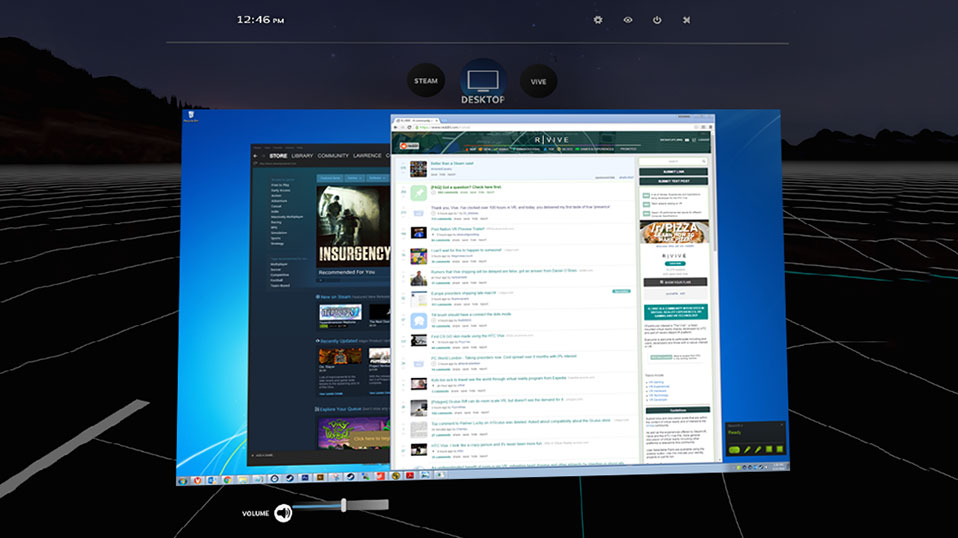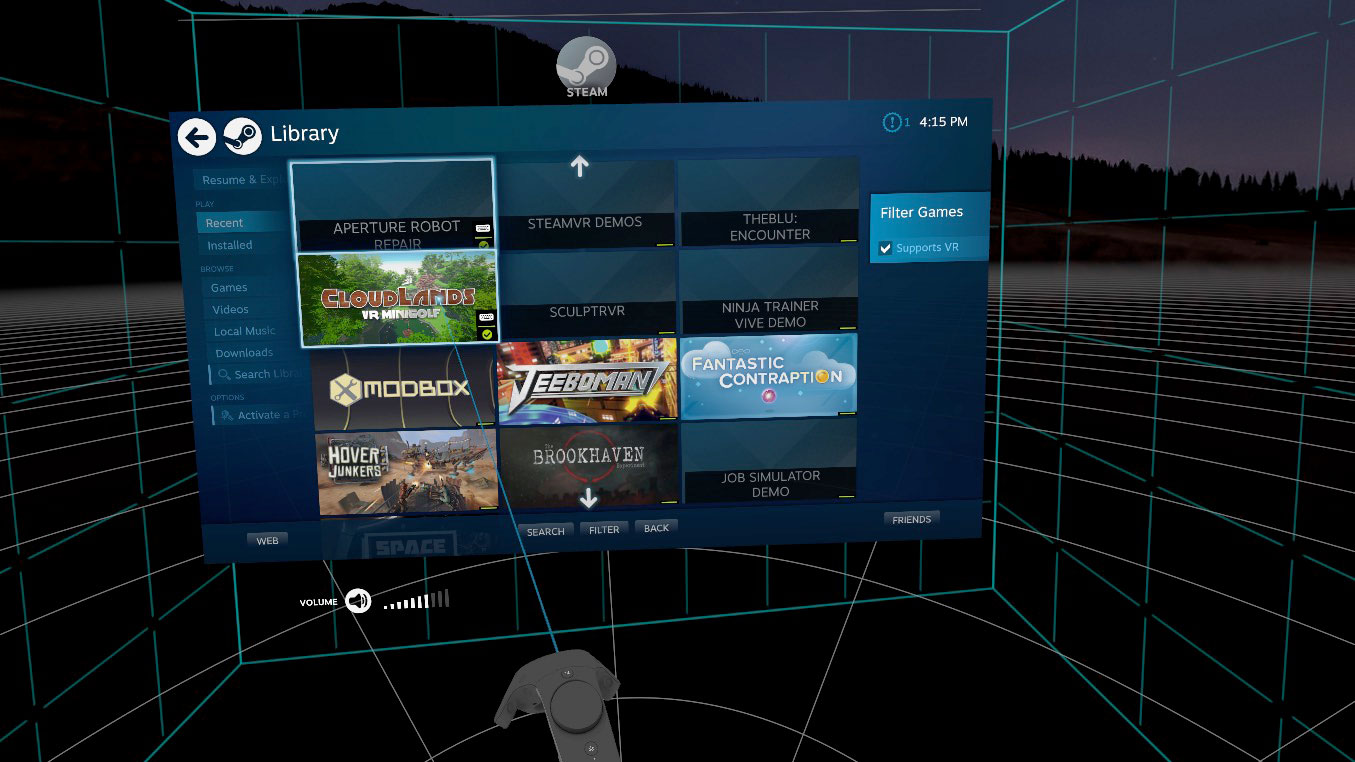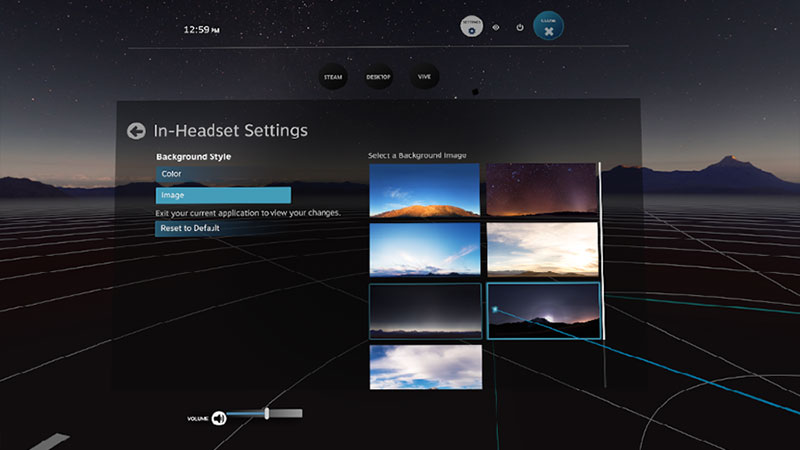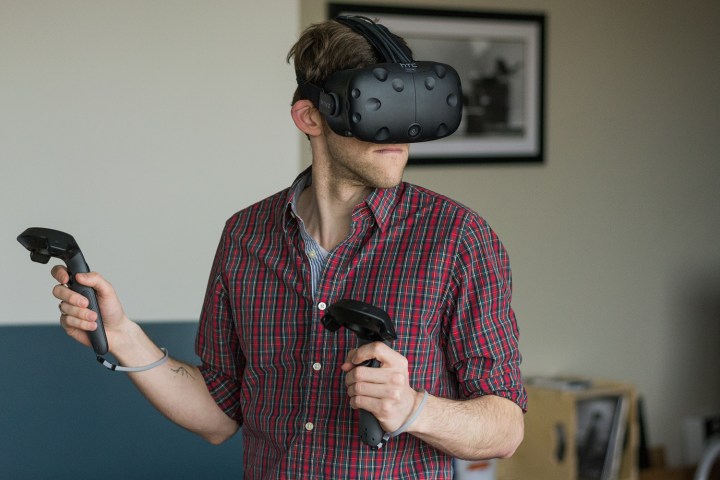
I don’t mean to brag, but I have a lot of friends on Steam.
Unlike Valve’s popular game management offering, Home is missing some key features that users have come to expect. It’s still somehow in beta, even though it theoretically could have been developed independently from the headset, and Home is the only official store for the now-released Rift headset. But its problems aren’t the kind software updates will solve. Oculus needs to update its philosophy too.
Real friends
I don’t mean to brag, but I have a lot of friends on Steam. It’s easy to add someone who pulled off four saves in Rocket League, or team up to learn some new skills from a player who crushed you in Dirty Bomb.
Once you’re friends, you can also see which games you both have, and what games they play the most. You can compare achievements, swap trading cards, sell extra items, and so on. Many gamers treat Steam as a metagame, chasing badges and achievements. There’s also a unique community aspect. Workshop and GreenLight help modders and developers put their creations in front of millions of users.
- 1. Steam VR
- 2. Steam VR
- 3. Steam VR
- 4. Steam VR
Oculus Home isn’t totally lacking in features, in that it also has a friends list, but there’s no chat or easy way to join a game in progress. All the list shows is if a friend is online, or offline. Oculus could patch in more community-focused features, but there’s a problem there, too. Gamers don’t want to chase down achievements and share games in a second ecosystem. They’ve shown this time and time again with disdain for publisher-developed platforms like Origin and UPlay.
Indeed, developer platforms provide Oculus a potential business model. The company could sell titles on Steam, and still maintain control over updates and distribution. That might help alleviate some of the pressure to create a platform of its own, an area where Oculus will be hard-pressed to keep up.
Finding a game shouldn’t be this hard
Home offers a limited selection of games and experiences, which is to be expected, but there’s still no way to filter the games down by genre or comfort level. Browsing is limited to all games or all experiences, plus a search option that only culls titles – you have to know the name of the game you’re looking for.
When it comes to browsing and buying, the Oculus store doesn’t hold a candle to Steam.
That’s not the only issue. Where Steam allows acute control of downloads, bandwidth, updates, and priorities, Oculus’ options aren’t quite so extensive. New games and experiences won’t download at all if the headset is in use, and there’s limited information during download and install even when a game isn’t active.
The hardware that divides
It’s easy to see the difference between the two stores when it comes to hardware. Steam was quick to update store pages to feature clear device support. Whether that’s the Rift or the Vive, or the controllers, it’s immediately obvious whether your hardware is supported.
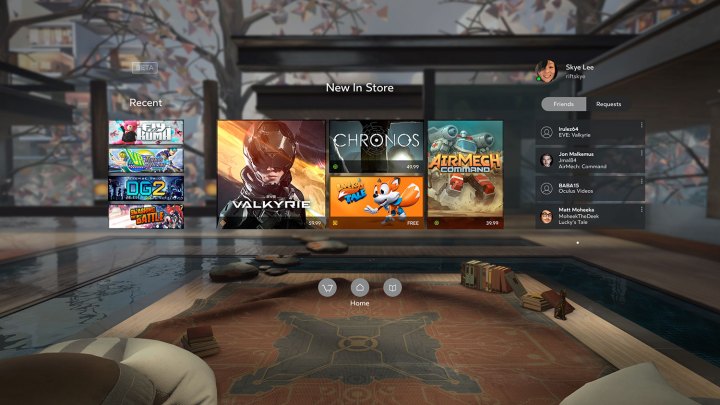
But when Oculus found out that a group of coders had built an interface for Vive players to play games from the Oculus store, it immediately insisted future updates would prevent this sort of “hacking” and possibly break existing solutions.
It’s a shame, because the hardware really isn’t all that different, at least in the headset. The Vive’s tracking includes the motion controllers and 360-degree movement, but there are workarounds there, too. Oculus could cooperate more readily, but has decided not to.
Why is it so important?
The audience for VR, especially in this first run, is the PC gaming community. The reason the cost of a PC is often overlooked in VR discussions is that a lot of us already have capable systems sitting on our desks. It’s also, importantly, a community of builders, tinkerers, modders, and users who, in general, prefer ecosystems open, and hardware that’s versatile.
Which is why Oculus’ whole approach to building a community seems ass-backwards. Allowing users who shell out for any VR device to run Rift games is a boon to Oculus, and allowing the Rift to go places Oculus never imagined is a solid way to encourage sales. Money aside, Oculus set out to promote VR as an idea, not just as its own product, right?
I always try and keep in mind that this is first-generation, early adopter hardware. Both the HTC Vive and Oculus Rift are very much works in progress, but their success will determine whether this technology is the next big thing, or another mediocre trend. The Rift has been in development for four years, and is marketed as a premium gaming product, so asking for in-game chat or store filters doesn’t seem like much of a stretch.
Oculus’ decision to build its own, exclusive platform seems meant to please Facebook shareholders, not the PC gaming community. Ultimately, Oculus Home will leave both worse off.
